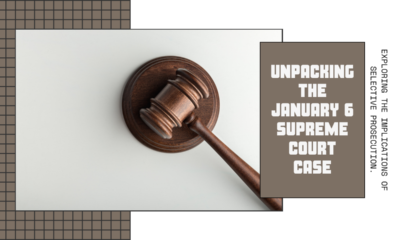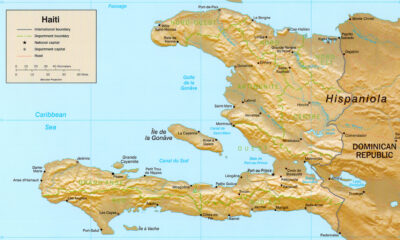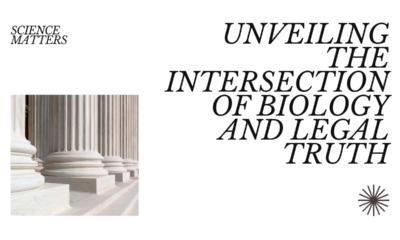Christianity Today
Pre-born life falls through the cracks
In Doe v. McKee, the U.S. Supreme Court missed a chance to defend the lives of the pre-born. Must that await a generational change?
Earlier this week, the United States Supreme Court quietly let stand a State Supreme Court ruling that a pre-born child is not a person. The case at hand is the first case to challenge a State law permitting abortion on equal-protection grounds. We know only that three or fewer Justices would have granted certiorari in this case; none of them filed dissents. CNAV encourages other plaintiffs to try again and again until the Supreme Court faces squarely whether the Constitution of the United States grants a right to life.
Rhode Island petitioners on behalf of the pre-born
Reportage on this matter comes from Forbes Magazine and Steve Ertelt’s Life News. From these reports came the case name, which enabled a search of the Order List for the Court docket entry.
The case at hand is Jane Doe et al. v. Daniel McKee, Docket No. 22-201. The docket listing gives a terse summary of the proceedings. Two adult women sued the State of Rhode Island on behalf of two pre-born children, to overturn Rhode Island’s Reproductive Privacy Act of 2019 (the RPA). Catholics for Life, doing business as Servants of Christ for Life, joined them in the suit. Mr. Michael Benson, another citizen of Rhode Island, also joined, alleging that the Reproductive Privacy Act presumed to amend further Rhode Island’s Constitution and thus required voter approval. Benson v. McKee, 273 A.3d 121 (R.I. 2022).
The Superior Court of Rhode Island summarily dismissed the suit, saying none of the plaintiffs had standing. So they appealed – and the Supreme Court of Rhode Island affirmed the lower court.The adults couldn’t establish that the RPA required voter approval, and the pre-born children couldn’t establish personhood. The rejection of personhood is they key. The Rhode Island Supreme Court relied on Roe v. Wade to deny personhood to the pre-born plaintiffs.
The Rhode Island Supreme Court filed their opinion on May 4, 2022. But something had already happened two days before that should have prompted that Court to “stop the presses.”
The Big Leak
That something was the Big Leak of Justice Samuel A. Alito’s first-draft opinion in Dobbs v. Jackson Women’s Health Organization. As everyone now knows, that opinion flatly repudiated Roe. We still don’t know who leaked that draft, but we do know Alito’s reasoning. Basically he said that the Roe court, and the Casey court after it, hadn’t a Constitutional leg to stand on.
But Justice Alito did not say that the pre-born child is a person. He said only that the Constitution does not protect any right to end a pregnancy.
Mr. Benson and his fellow plaintiffs petitioned the Rhode Island Supreme Court for reargument on May 16. In their petition they said the Big Leak gave every reason to doubt that Roe would remain binding precedent.
The Rhode Island Supreme Court refused reargument. But, as everyone knows, the Dobbs case came down on June 24. Justice Alito’s opinion survived virtually intact, except maybe for the striking of a two-word interjection (“Zero. None.”). On that basis, the two advocates for the pre-born, and Catholics for Life, petitioned the U.S. Supreme Court for review. One can read their petition, and its Appendix, at the Supreme Court site, or here.
See also Steve Ertelt’s article for an excellent discussion of briefs contending that a pre-born child is a person.
The likely split that disfavors the pre-born for now
CNAV said the next day, and repeats here: the Dobbs majority might split on the question of an affirmative right to life for the pre-born.
Again, we know only that fewer than four Justices would have granted certiorari in the case of Doe v. McKee. It takes four Justices to grant certiorari, and five to decide a case. Five Justices (Roberts CJ and Barrett, Gorsuch, Kavanaugh, and Thomas JJ) joined Justice Alito in Dobbs.
So of those six, who would have been most likely to grant the petition? For that we must read the opinion in Dobbs. Justice Alito gave the opinion of the Court. Justices Barrett and Gorsuch wrote no concurrences. But Justices Thomas and Kavanaugh, and Chief Justice Roberts, did. To those we now turn.
Justice Thomas becomes the most staunch candidate to declare a right-to-life for the pre-born. His concurrence strongly suggests that he compares pre-born children today, to the slaves before the War Between the States. Indeed his entire jurisprudence bristles with references to Dred Scott v. Sandford as the worst error the Court ever made. Chief Justice Roger B. Taney denied standing to Dred Scott. If pre-born children are today’s Dred Scotts, Clarence Thomas would definitely give them standing.
Chief Justice Roberts would not. Recall that he tried to protect Roe by finding that a fifteen-week-developed pre-born child was viable. Brett Kavanaugh, in his concurrence, dropped hints that he might not grant standing either. This would go to “unelected” Justices deciding moral issues.
Looking ahead
Justice Gorsuch has left no clue to where he stands on matters of life. Justice Barrett has left clues, in her earlier jurisprudence and her personal life. If any Justice would join Justices Thomas and Alito in granting standing to pre-born children, she would. But Gorsuch is less likely. Again, that’s six to three against. Result: “cert denied.”
Jesus tells a parable about an unjust judge who nevertheless grants a widow’s petition just to stop her pestering him. (Luke 18:1-8.) That gives a clue to what to do next: don’t give up. For forty-nine years, pro-life advocates petitioned the Court repeatedly. We also saw the March for Life, that always finished on First Avenue Southeast, in front of the Court. (Next year, for the first time, they’ll finish in front of the Capitol, not the Supreme Court House.)
The Supreme Court, in its 2021 Term, did more than remove a federal Constitutional “right” to end a pregnancy. They also declared that people of faith deserved freedom to worship publicly, and equal consideration in the public square and the administration of government programs. But those are only the first steps. Perhaps the next generational change to the Court must be a Bible believing Court that boldly declares:
- The reality of God, and:
- His supercession even of the Constitution, to confer the full right to life on all human beings, regardless of stage of development.
How long with that take?
Perhaps not as long as people think. Remember that citizens on the political left and right do not reproduce at the same rate. Conservatives do all the things liberals don’t. They marry, start families, keep their babies, and raise their children. Already people are sorting themselves out among the several States, according to political viewpoint. California lost a seat in the House of Representatives on the strength of this Great Sortation.
Sadly, this will polarize the States according to political viewpoint. Virginia already has become a battleground and must decide in its next off-year election what kind of State to be. Delegate Elizabeth Guzmán (D-Prince William Co.) hinted two days ago that she would introduce a bill to bring misdemeanor or even felony charges against parents who refuse to consent to puberty blockers or sexual reassignment surgery for their children, according to Station WJLA-TV, Channel 7, Washington, D.C. Last night, Washington, D.C. Station WUSA-TV (Channel 9) reported that Delegate Guzmán had taken that back. But her counterparts in other States might move forward with such bills.
But within a generation or two, political power in many “blue States” will shift, as rural populations out-reproduce the urbans. That shift will change the Congress, and also the nation’s law schools and, through them, the judiciary. In the meantime, conservatives should press their States to repeal their Blaine Amendments and bring back sound moral education.
Terry A. Hurlbut has been a student of politics, philosophy, and science for more than 35 years. He is a graduate of Yale College and has served as a physician-level laboratory administrator in a 250-bed community hospital. He also is a serious student of the Bible, is conversant in its two primary original languages, and has followed the creation-science movement closely since 1993.
-

 Executive3 days ago
Executive3 days agoJanuary 6 case comes down to selective prosecution
-

 Executive2 days ago
Executive2 days agoBiden ballot woes continue
-

 News3 days ago
News3 days agoRolling the Dice on Republicans: Has the Right Become Delusional?
-

 Executive2 days ago
Executive2 days agoWhy Fatal Police Shootings Aren’t Declining: Some Uncomfortable Facts
-

 Civilization2 days ago
Civilization2 days agoPresident Biden Must Not Encourage Illegal Mass Migration From Haiti
-

 Constitution2 days ago
Constitution2 days agoEquality Under the Law and Conflicts of Interest in New York
-

 Civilization3 days ago
Civilization3 days agoBiology, the Supreme Court, and truth
-

 Executive1 day ago
Executive1 day agoDon’t






